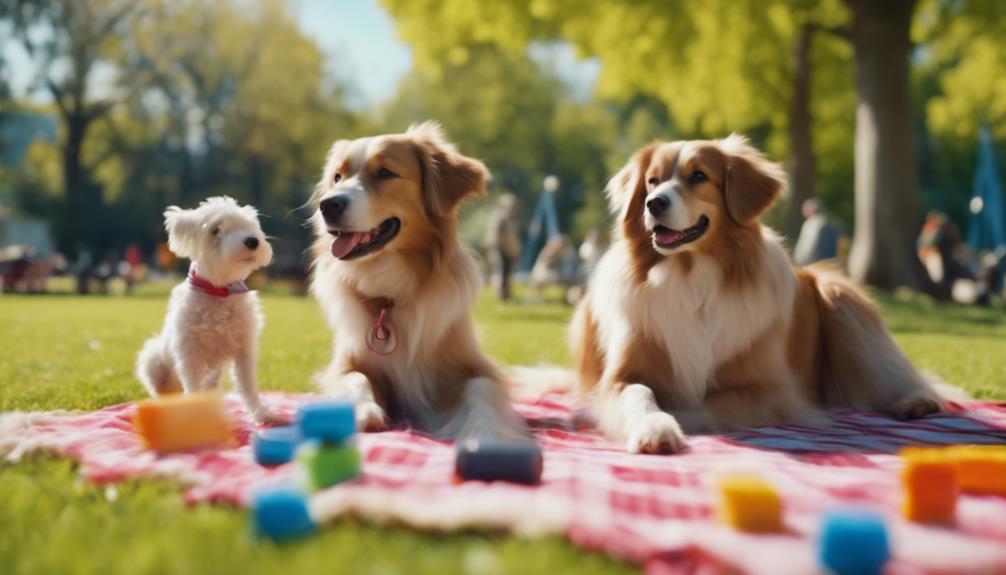Successful playdates with your dog require careful planning and consideration to ensure both safety and enjoyment. Selecting the right canine companions based on temperament and energy levels is fundamental, as is preparing your dog through proper socialization and health assessments. Additionally, the location of the playdate plays a critical role in fostering positive interactions. However, understanding the nuances of dog behavior and managing the dynamics during these playdates can be complex. Exploring these essential elements can significantly enhance the experience for both you and your dog, leading to a more fulfilling companionship.
Choosing the Right Playmate
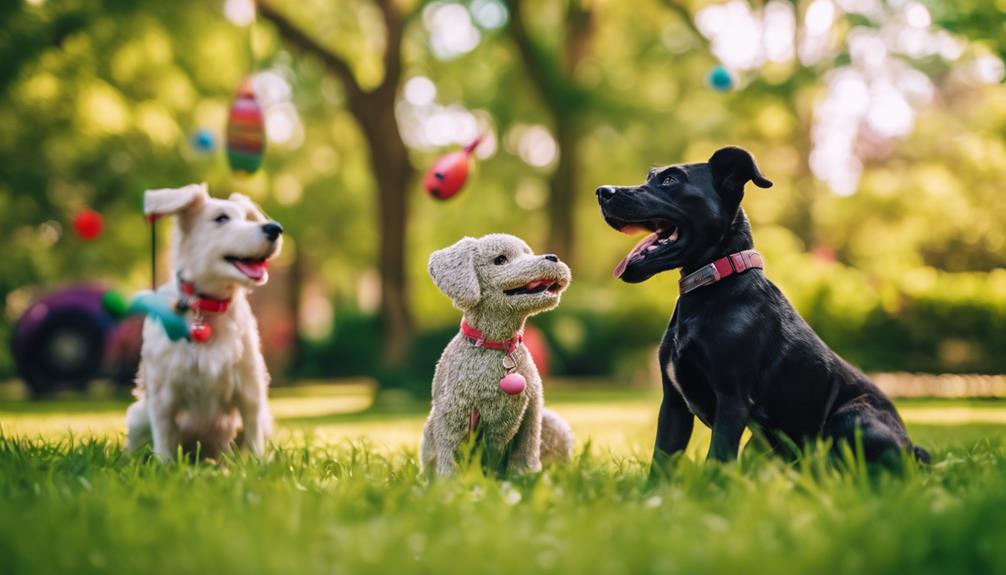
Selecting the appropriate playmate for your dog is crucial to ensuring a positive and enjoyable playdate experience.
Understanding dog personality traits is essential in this process, as dogs exhibit various behaviors, such as being playful, shy, or dominant. A friendly and energetic dog may thrive with a similarly spirited partner, while a more reserved dog may prefer a calm companion.
Additionally, considering breed compatibility can significantly impact the playdate's success. Some breeds have specific tendencies that may not align well with others, potentially leading to conflicts. For instance, large breeds may unintentionally overwhelm small breeds.
Therefore, assessing both personality traits and breed compatibility is vital for fostering a safe and happy environment during playdates.
Preparing Your Corgi for Playdates
Preparing your Corgi for playdates involves ensuring proper socialization, health checks, and understanding their unique personality traits.
Begin by introducing your Corgi to various environments and other dogs using effective socialization techniques. This helps them become more comfortable during playdates. A health check is essential; ensure your dog is up-to-date on vaccinations and free from parasites.
Familiarize yourself and your Corgi with playdate etiquette. Teach your dog basic commands like “sit” and “stay” to promote good behavior.
Additionally, monitor their interactions closely to prevent overwhelming situations. Recognizing your Corgi's specific temperament will allow you to tailor playdates to their needs, ensuring a positive experience for both your pet and their playmates.
Ideal Playdate Locations
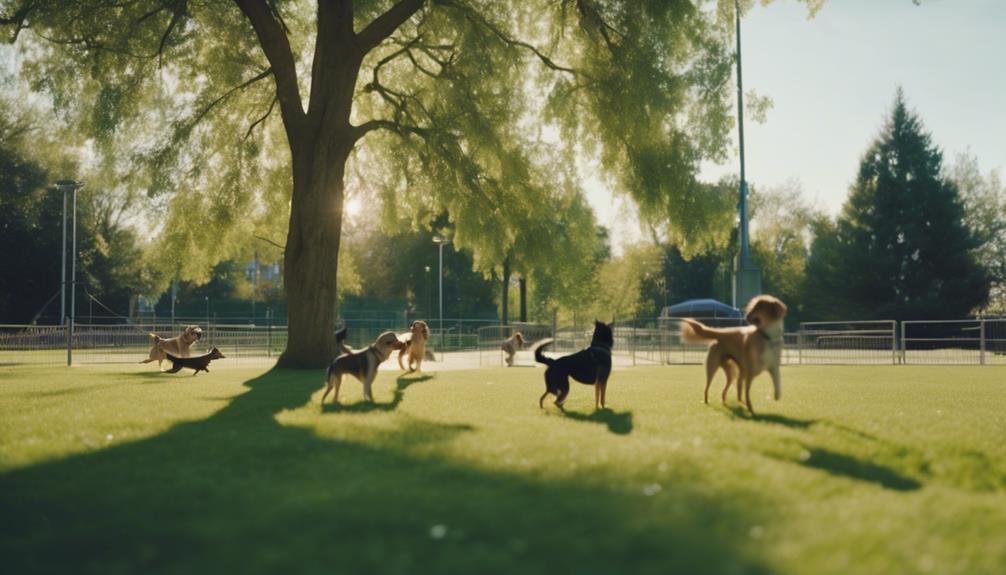
Choosing the right location for a playdate can significantly enhance your Corgi's enjoyment and interaction with other dogs. Two popular options are dog parks and backyard playdates.
Dog parks provide ample space for dogs to run freely and socialize, often featuring agility equipment and separate areas for different sizes. They encourage healthy physical activity and help dogs develop social skills.
On the other hand, backyard playdates offer a controlled environment, reducing distractions and potential conflicts. This setting allows for personalized play, where you can supervise interactions more closely.
Regardless of the location, ensure it is safe and secure. Both options can offer enjoyable experiences, but selecting the right one depends on your dog's personality and comfort level.
Introducing Dogs Safely
A successful introduction between dogs requires careful management to ensure a positive and safe experience for all involved.
First, select a neutral location where neither dog feels territorial. Before allowing them to meet, observe their dog body language; signs of relaxation, such as a wagging tail and loose stance, indicate readiness for interaction. Conversely, avoid introductions if either dog displays signs of stress, like growling or stiff body posture.
When they first meet, keep them on leashes to control the situation. Allow them to sniff each other briefly, gradually increasing their interaction time as they seem comfortable.
Monitoring Playtime Interactions
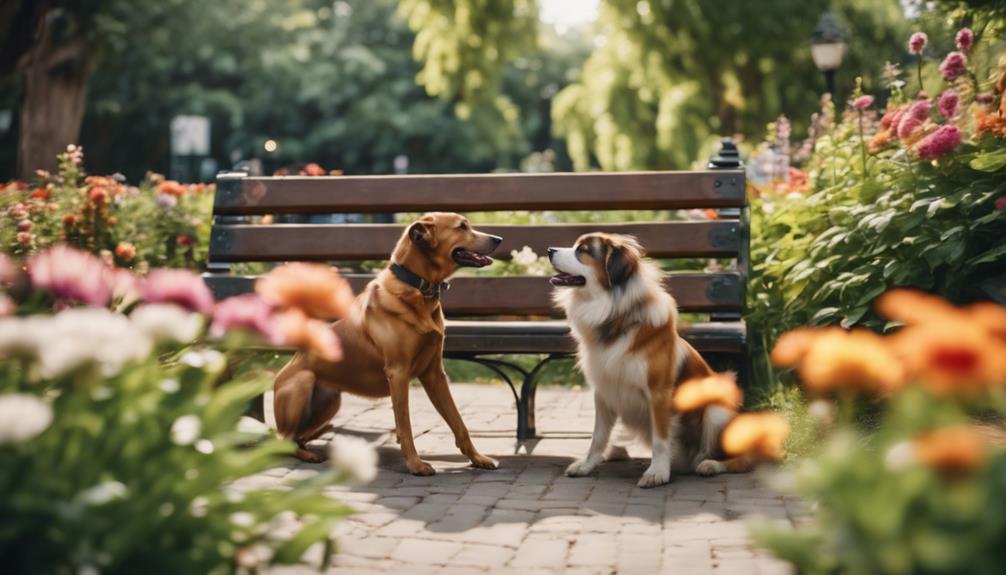
Effective monitoring of playtime interactions is essential to ensure that all dogs involved remain safe, engaged, and comfortable throughout the experience.
Understanding dog body language is crucial, as it helps identify signs of stress or excitement. Watch for changes in posture, vocalizations, and facial expressions, which can indicate a need for intervention.
Here are some tips for effective monitoring:
- Observe the dogs' interactions closely.
- Recognize signs of discomfort or aggression.
- Implement conflict resolution strategies promptly.
- Provide breaks if play becomes too intense.
Encouraging Positive Behavior
Promoting positive behavior during playdates requires a proactive approach that reinforces desirable interactions among dogs.
One effective method is positive reinforcement, which involves rewarding dogs for good behavior with treats or praise. This encourages them to repeat those actions.
It's also essential to observe dog body language; signs such as wagging tails and relaxed postures indicate comfort and happiness. Conversely, growling or stiff body language may signal discomfort or aggression.
As a host, you can facilitate positive experiences by supervising interactions, stepping in when necessary to prevent negative behaviors, and redirecting attention towards more favorable activities.
Building a positive atmosphere helps ensure that all dogs leave the playdate happy and more socially adept, paving the way for future interactions.
Managing Energy Levels
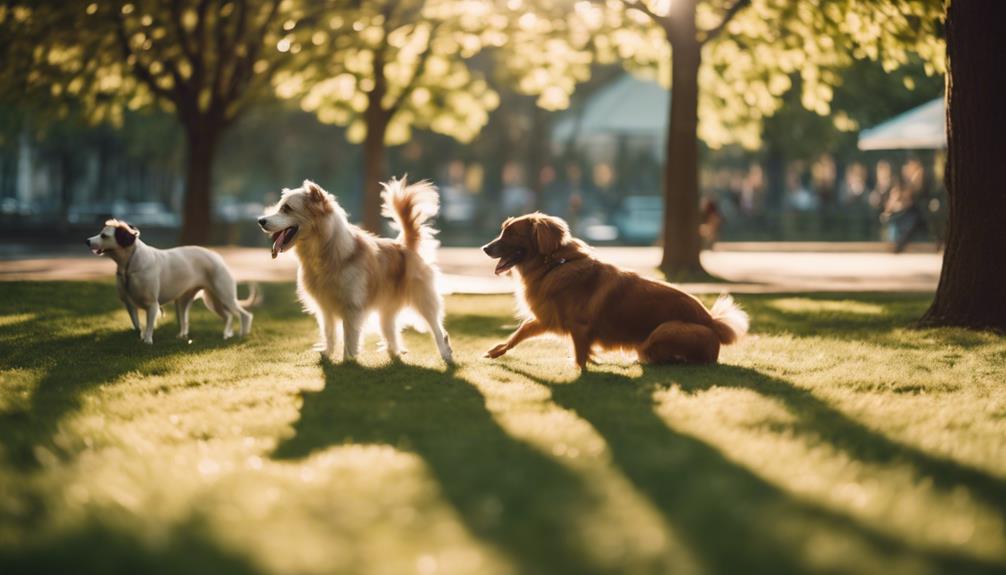
Balancing energy levels during dog playdates is crucial to ensuring a safe and enjoyable experience for all participants. Dogs have varying energy outlets, and understanding these can help maintain a harmonious atmosphere.
Before the playdate, establish playtime routines that consider each dog's activity level.
- Schedule a short walk to expend excess energy.
- Introduce toys that encourage interactive play.
- Monitor play intensity and intervene if necessary.
- Provide breaks with water and rest periods.
Post-Playdate Care and Tips
After a playdate, it is essential to implement a structured routine for your dog's recovery and well-being to ensure they remain comfortable and healthy.
Start with post playdate hygiene; give your dog a gentle bath if they've rolled in dirt or gotten wet. Brushing their coat can also help remove loose fur and debris.
Next, utilize calming techniques to help your dog relax. A quiet space, along with soft music or a cozy blanket, can create a peaceful environment. Offering a light snack or their favorite toy can also ease them into a restful state.

